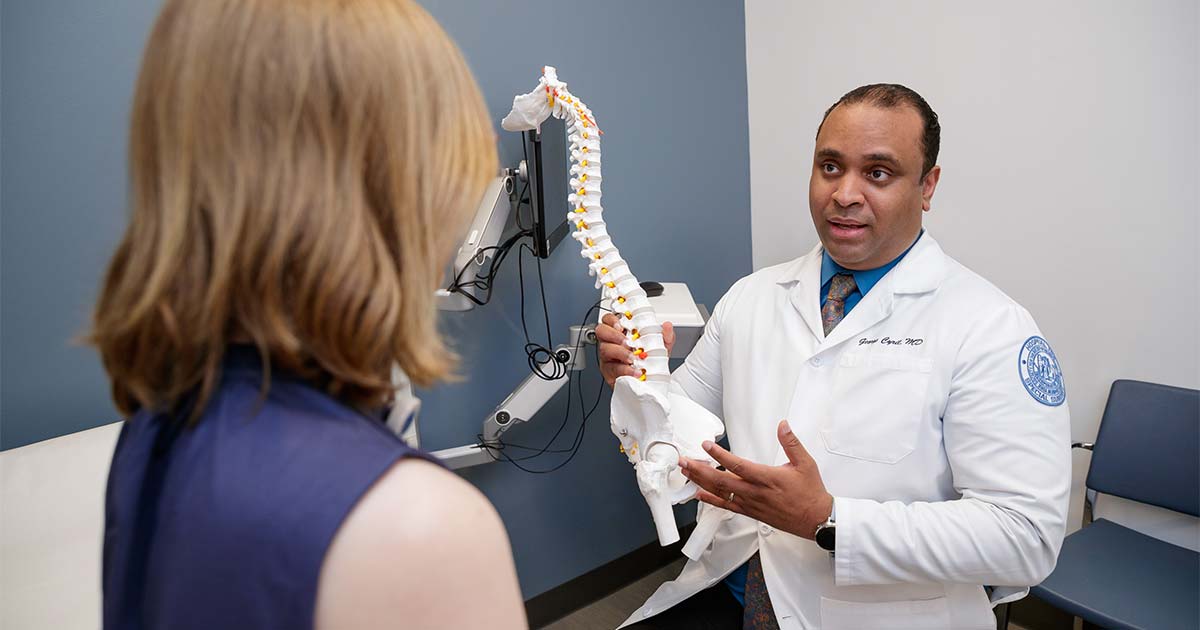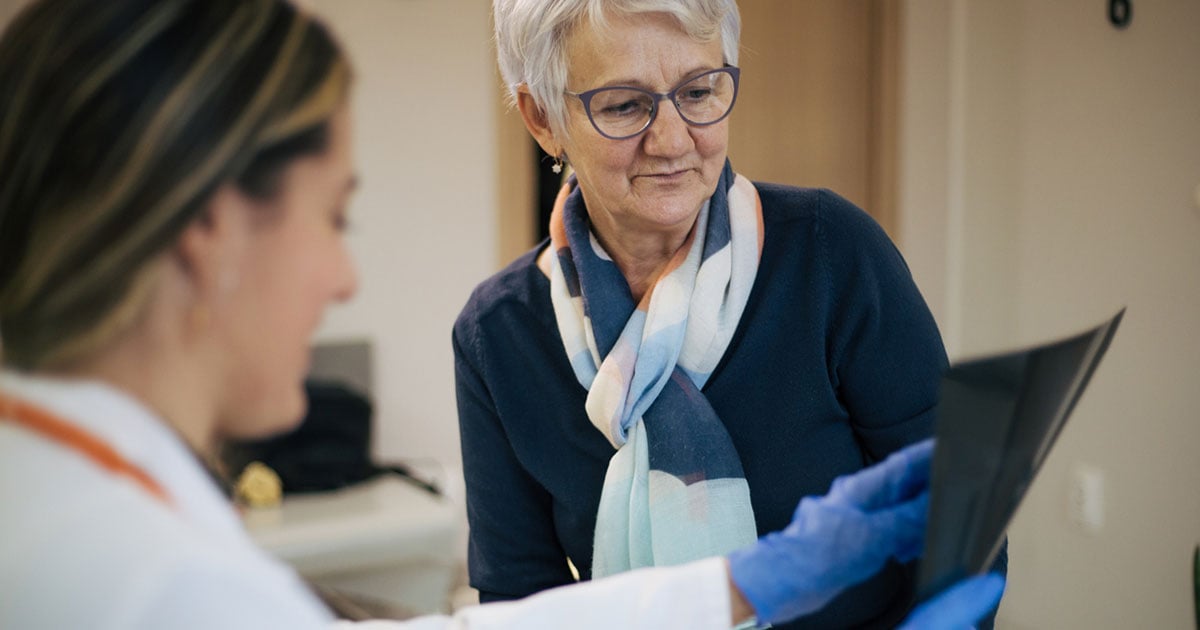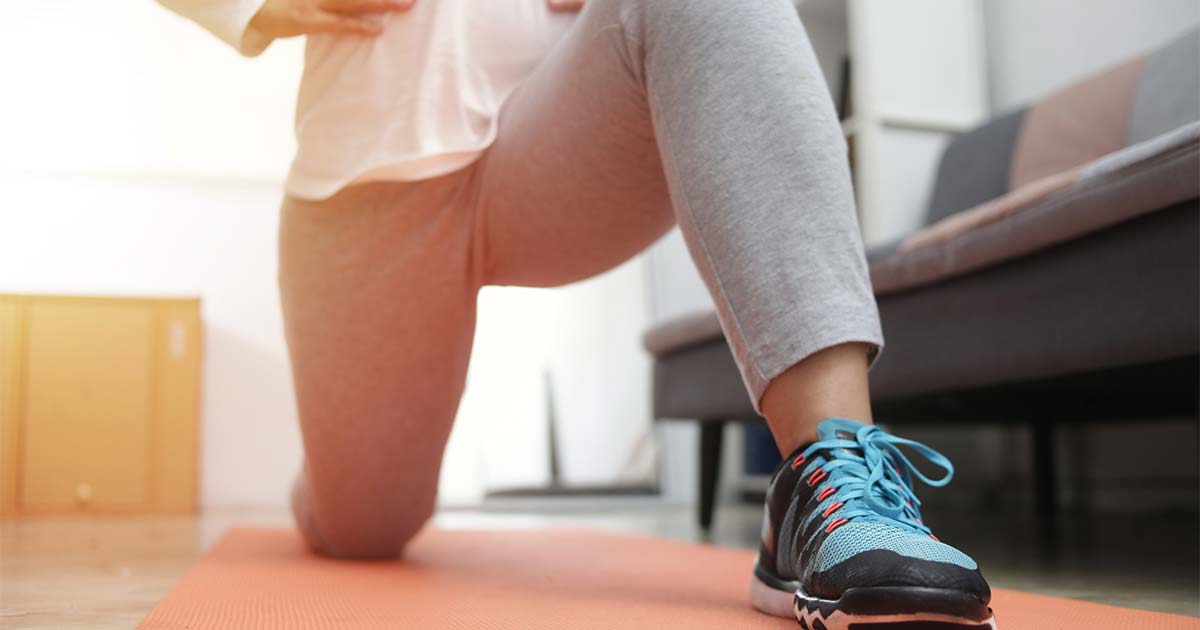
Advice to improve your movement, fitness, and overall health from the #1 in orthopedics in the U.S.
Should You See a Doctor for That Hip Pain?
If you’re not sure your hip pain warrants a doctor’s visit, this expert advice can help you figure it out.
Advice to improve your movement, fitness, and overall health from the #1 in orthopedics in the U.S.

How they work: The hip is made up of two bones: The thighbone, also called the femur, and the pelvis. The hip joint is where the rounded upper end of the thighbone meets the part of the pelvis called the acetabulum, and the two structures fit together like a ball and socket. Articular cartilage, a smooth protective liner, limits friction between the joint surfaces during movement, allowing the ball to rotate freely in the acetabulum so that you can rotate your leg forward, backward and sideways. This in turn allows you to walk, bend, squat, or even do an arabesque if you’re so inclined.
Several muscles, joints, and tendons attach to the hip bones and/or the joint. These help initiate and control the motion and decrease friction.
And while the hip joint is the largest ball-and-socket joint in your body, it’s not indestructible. It takes a lot of the impact of your body weight, so muscles and tendons can get weary from overworking, the cartilage can suffer wear and tear, and bones can even break after a fall or hard hit.
At-home treatments
Not every ache or injury requires a trip to the doctor. If your hip pain is on the milder side – the it’s kind of annoying, but not debilitating kind, HSS physiatrist George Cyril, MD, suggests trying these at-home treatments first.
- Rest. Avoid any activities that aggravate your hip, and sleep on your good side.
- Ice or heat. If the area feels bruised or painful, try icing for 20 minutes at a time. Just remember never to apply ice directly to your skin. If the muscle around the hip feels tight, soak in a warm bath or shower, or put a warm (never hot) washcloth or heating pad on it for 20 minutes at a time.
- Compression. Lightly wrap the area in a soft bandage or wear a compression brace to put gentle pressure on the hip, which can help ease pain and swelling around the joint.
- Elevation. Keeping the hip above the heart (resting on a stool or pillow) can help keep blood from pooling, which can reduce swelling.
- Pain relievers. Over-the-counter analgesics, such as acetaminophen, or nonsteroidal anti-inflammatory medications like ibuprofen or naproxen sodium can help reduce pain or decrease inflammation.
If you’ve tried these for a week and the pain doesn’t improve or gets worse, it’s time to see a professional. Additionally, if you see any of the following, see a doctor right away:
- Pain accompanied by fever or chills
- Nighttime pain
- Pain with any sort of movement
- Inability to move or bear weight on your leg or hip at all
- Any discoloration of the skin over your hip
- Pain that comes on suddenly
- A joint that looks deformed
Doctors who treat hip pain
Several specialists can help.
- A physiatrist is trained in physical medicine and rehabilitation. After subspecialized training they are well equipped to diagnosis and treat most conditions in the musculoskeletal system, including the bones, joints, ligaments, tendons, and muscles, and can provide nonsurgical treatments, as well as certain interventional procedures like nerve blocks and musculoskeletal ultrasound. They focus on developing a comprehensive program that can restore function after injury or disease without surgery.
- An orthopedic surgeon also specializes in the musculoskeletal system, including the bones, joints, ligaments, tendons and muscles, but focuses more on surgical interventions to manage these conditions when necessary. While they are trained to perform surgery to repair an injury or fix structural issues, orthopedic surgeons do explore nonsurgical treatment options, including pain management and rehabilitation. Most orthopedic surgeons subspecialize in specific treatment areas, so you’d want to see a surgeon who focuses on hips.
- A sports medicine specialist is usually an orthopedic surgeon or primary care doctor who treats sports injuries and can also help to maximize athletic performance. They also treat non-sport injuries, and you don’t have to be an athlete to see a sports medicine specialist for hip pain.
- A physical therapist has training in musculoskeletal medicine and can work with patients directly to decrease pain through exercises, hands-on care and patient education. Physical therapy can be optimized when you have a diagnosis, so you may want to see a physician specialist before going for physical therapy.
Published 3/24/2022


